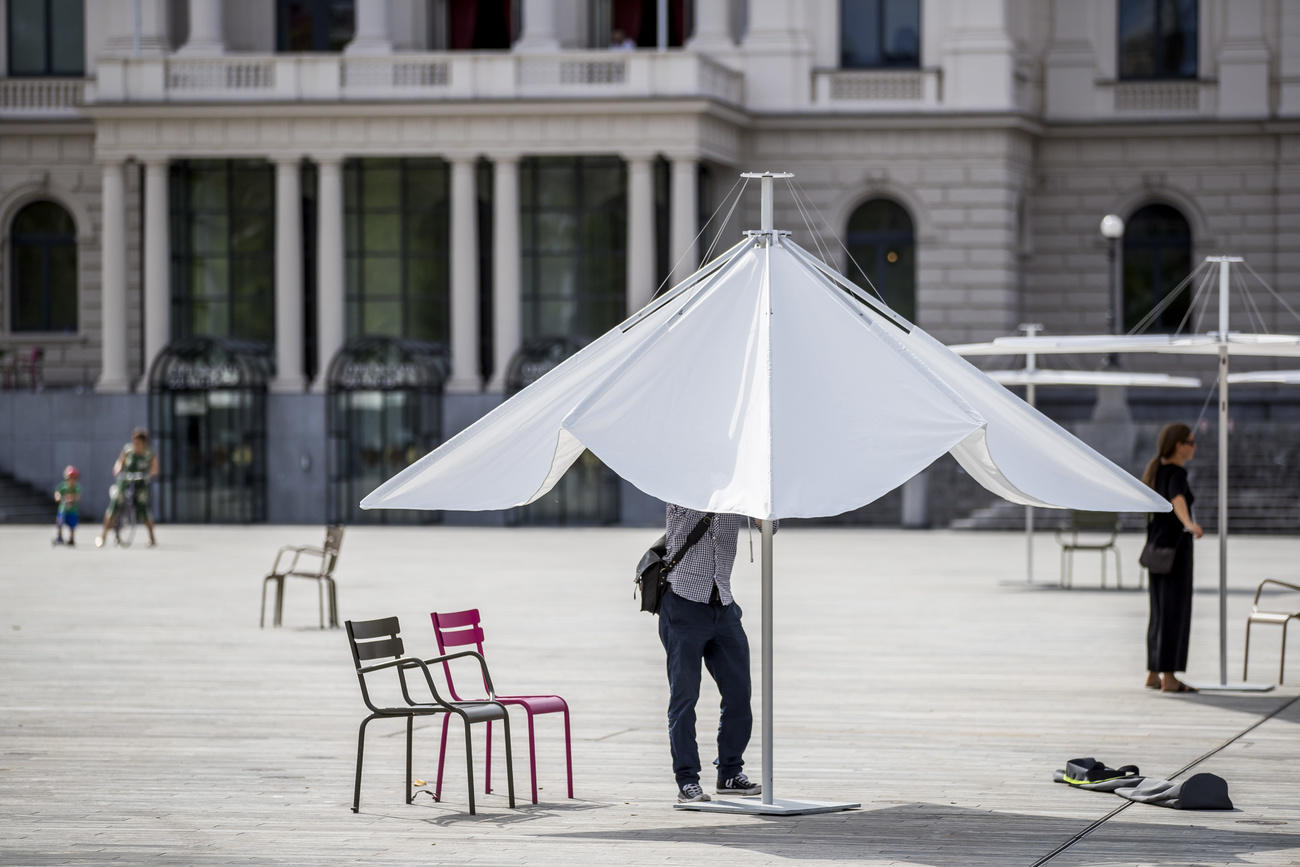
Climate crisis may cost Swiss infrastructure CHF1 billion a year

Damage to roads and railways caused by global heating, and the consequences for hydro- and nuclear power plants, could cost up to CHF1 billion ($1 billion) a year, says a government report.
A study released by the Federal Department of the Environment, Transport, Energy and Communications (DETEC)External link on Thursday examined the risks to the country’s infrastructure as a result of the climate crisis. An increase in the number of heatwaves, rockfalls and landslides will cause more damage to rails and roads, it said.
Rising temperatures will require investment in roads that can withstand heat. Damage caused by low temperatures will decrease. In the rail sector, extreme temperatures will require a reduction in train speed, which could result in expensive delays.
Higher temperatures, irregular rainfall and drier summers are already reducing the output of nuclear and hydroelectric power plants. The authors of the report estimate that by 2050, the energy sector will lose hundreds of millions of francs in revenue. In the medium term, the impact on transport and energy sector can cost up to CHF1 billion francs per year. However, the authors acknowledged that there are considerable gaps in knowledge and that the forecasts must be treated with caution.
DETEC also announced a “Climate Change Adaptation Action Plan” to ensure protection of public infrastructure. Risks related to climate change will be taken into account in spatial planning. A research program to improve the knowledge base is also planned.
Switzerland’s environment and energy minister Simonetta Sommaruga, who was present at the event, said that reducing CO2 emissions remains at the heart of national and international climate policy.

More
How climate change affects Switzerland

In compliance with the JTI standards
More: SWI swissinfo.ch certified by the Journalism Trust Initiative

























You can find an overview of ongoing debates with our journalists here . Please join us!
If you want to start a conversation about a topic raised in this article or want to report factual errors, email us at english@swissinfo.ch.